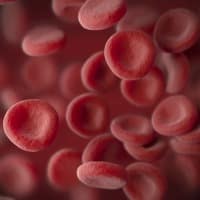In a bold experiment, scientists are trying to reverse aging in older humans with infusions of younger blood. This comes after a study on mice showed that the procedure had some promise. There was evidence that the red blood cells from the younger mice produced muscle repair in the older mice. Now researchers from California are trying to replicate the results in older people in a clinical trial. The aim of this radical approach is to alter levels of bad proteins in the blood of older people. These proteins are believed to be responsible for hampering the growth of healthy tissue. This could help in the prevention of age-related disease and possible slow down the aging process. The study was published in the journal Nature Communications.
Resetting Blood Proteins Key to Life Extension
The animal study was co-funded by Calico, which is a life extension company owned by Google. The experiment was reversed on mice with old blood infused into young mice. The results showed a reduction in new liver and brain cells in the young mice and impaired performance in strength. This gave more credibility to the original experiment. In the human trial, older blood will pass through a machine that will try to reset proteins to a healthier level in the hope that body tissues will be properly maintained thus slowing down aging.
This new study is one of many that show key molecules in the blood can alter the pace of aging in body tissue. When these proteins are at low levels the body is healthy, but as we get older these protein levels can change. The team is now considering a more practical approach to control the levels of the proteins without blood transfusions. According to one scientist, these new treatments could prevent diabetes, Alzheimer’s, and Parkinson’s disease.
Another scientist Tony Wyss-Coray, from Stanford University was not convinced by the study and pointed out that only four pairs of mice were used in the experiment. In past experiments on animals, a procedure called parabiosis was used to swap blood between animals by conjoining them surgically. In this study, scientists did not use surgery but instead transferred blood through a tube and pump controlled by a computer.
Advanced Treatments Could Arrive in Three Years
The team is now working on devices that filter blood in more advanced ways to reduce high levels of the bad proteins. This will return the proteins to more youthful levels. The key here is to remove the inhibitor molecules and then to return the filtered blood back to the recipient. This medical procedure could result in life extension that could give people an extra three decades of life without any critical illnesses.
The Berkley team is currently brainstorming for ideas on how to normalise the levels of one particular protein considered to be the inhibitor. They hope clinical trials will start within six months and start producing results within three years. Scientist could be on the verge of transforming our lives by slowing the aging process and stopping age-related diseases.




